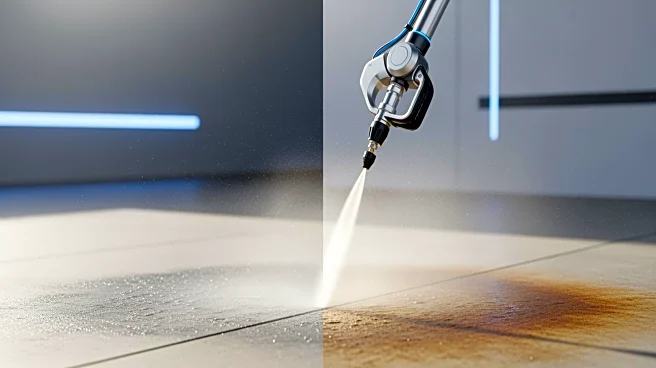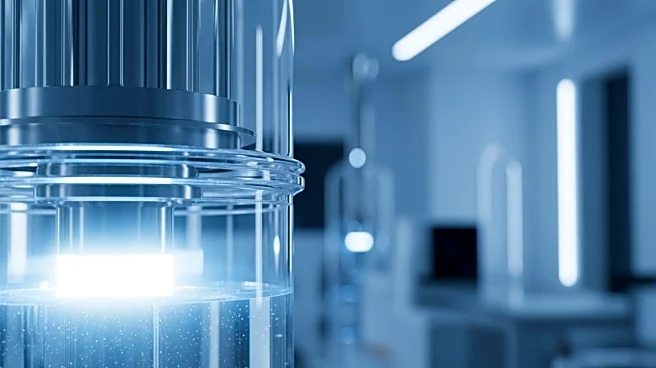What's Happening?
Lucid Bots has launched the Lavo AI, the industry's first fully autonomous ground-based pressure washing robot. This innovative robot is designed to transform labor-intensive cleaning tasks into scalable,
profitable services. With the ability to clean up to 6,000 square feet per hour, Lavo AI operates with precision and consistency, requiring no manual operation. The robot utilizes Click-and-Clean technology powered by Lucid OS, allowing operators to set up, save, and repeat cleaning jobs easily. Lavo AI is equipped with advanced autonomy, vision systems, and mapping intelligence, powered by Nvidia's edge-compute platform, enabling it to navigate complex environments safely.
Why It's Important?
The introduction of Lavo AI addresses the growing infrastructure challenge faced by organizations due to record-high infrastructure investments and a shrinking maintenance workforce. The U.S. janitorial services industry, valued at over $100 billion, is largely manual, with autonomous systems representing less than 1% of operations. Lavo AI offers a solution to meet rising demands, reduce labor costs, and increase productivity. This development is significant for industries seeking to scale operations and protect workers, as it enhances efficiency and unlocks new levels of productivity.
What's Next?
Lucid Bots plans to begin limited pilot programs this winter, with general availability of Lavo AI expected in Q2 2026. The company is also scheduling live demo events in January in San Francisco, Los Angeles, and Austin. As the adoption of autonomous cleaning robots grows, it may lead to increased investment in intelligent service robotics and further innovation in the field. Facility teams and organizations are likely to explore the integration of such technologies to enhance operational efficiency and meet the demands of modern infrastructure maintenance.
Beyond the Headlines
The launch of Lavo AI may trigger ethical and cultural discussions about the role of robots in the workforce. As automation becomes more prevalent, there could be debates on the impact of robotics on employment and the need for policies to ensure fair labor practices. Additionally, the integration of autonomous systems in everyday life may lead to shifts in societal norms and expectations regarding technology and its role in human activities.










